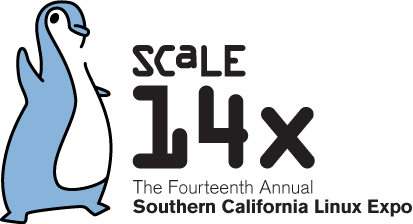Presentations

Cloud Foundry is an open source platform to deploy, monitor, recover, scale and update your apps. Come learn about Cloud Foundry, about how it’s developed and see a demo. As an open source software project, it’s developed in the open, by organizations (including SAP, Pivotal, HP, GE, IBM and many others) using methods like pair programming and dojos.

You have installed Docker, you know how to run containers, and have written Dockerfiles to build container images for your applications (or parts of your applications). Now what?
You wonder how to connect multiple containers together, how to deploy them on a cluster, instead of a single machine. This is what we will cover here: provisioning and running your cluster with Machine and Swarm, then running and scaling your appication on this cluster.
We will also talk about logs, backups, security, and a few other "ops" things.

Red Hat's Thomas Cameron will give a quick overview of container security. He'll discuss Linux capabilities (libcap), Security Enhanced Linux, control groups, kernel namespaces, tips and tricks, and bust soem myths about containers.
Broken benchmarks, misleading metrics, and terrible tools. This talk will help you navigate the treacherous waters of Linux performance tools, touring common problems with system tools, metrics, statistics, visualizations, measurement overhead, and benchmarks. You might discover that tools you have been using for years, are in fact, misleading, dangerous, or broken.

GitHub has become the primary place for Open Source communities to store and collaborate around code. Effective communities are more than just code though and in this presentation Jono Bacon, Director of Community at GitHub shares how to use GitHub and other related tools to build effective, productive Open Source communities
In this practical presentation he will cover collaboraton, release management, planning, issue tracking, advocacy, community growth, and other topics. If you use GitHub or are planning on using it, be sure to join this in-depth talk.

Good code isn't enough for a successful open source project. First of all, only you know how to use what you've made. Maybe it's time for a little UI and UX help? At the very least some documentation! And that's only the beginning. Ruth Suehle, manager of Red Hat's Open Source and Standards community leadership team, will take you throu hexamples of the best and the worst, from projects large and small, to help you see what you need beyond your code to build a successful open source project and community.

"Diversity" and "inclusion" have become popular buzzwords in the past five years among the tech community. Many open source projects have tried to attract developers who are traditionally underrepresented in tech, but some lack a systematic approach.
In 1943, Maslow defined the human hierarchy of needs: physiological, safety, belonging, esteem, and finally, self-actualization. Maslow theorized that the most urgent needs must be met before a larger goal can be accomplished. This talk will use Maslow's hierarchy of needs to create a systematic approach for increasing diversity in open source.

Linux sucks. There is no doubt. It just plain sucks. Give Bryan Lunduke 1 hour, and he'll prove it to you. Nearly 2 million people have watched the "Linux Sucks" series. If you miss a chance to be there in person... your friends will never let you forget it.

At over 15 million lines of code, it's safe to say the Linux Kernel is a complex behemoth of open source software. Making modifications to the kernel is well within your reach, though! This talk will explain step by step how to make, test, and debug small modifications to the linux kernel. We will go over how to use your Shiny New Modified kernel to boot a VM, how to compile the Linux Kernel, and how to debug any issues you may have.

If cyberwar were a hockey game, it'd be the end of the first period and the score would be tied 500-500. All offense, no defense. Meanwhile, a horrible convergence has occurred as everyone from car manufacturers to insulin pump makers have adopted the inkjet printer business model, insisting that only their authorized partners can make consumables, software and replacement parts -- with the side-effect of making it a felony to report showstopper, potentially fatal bugs in technology that we live and die by.


